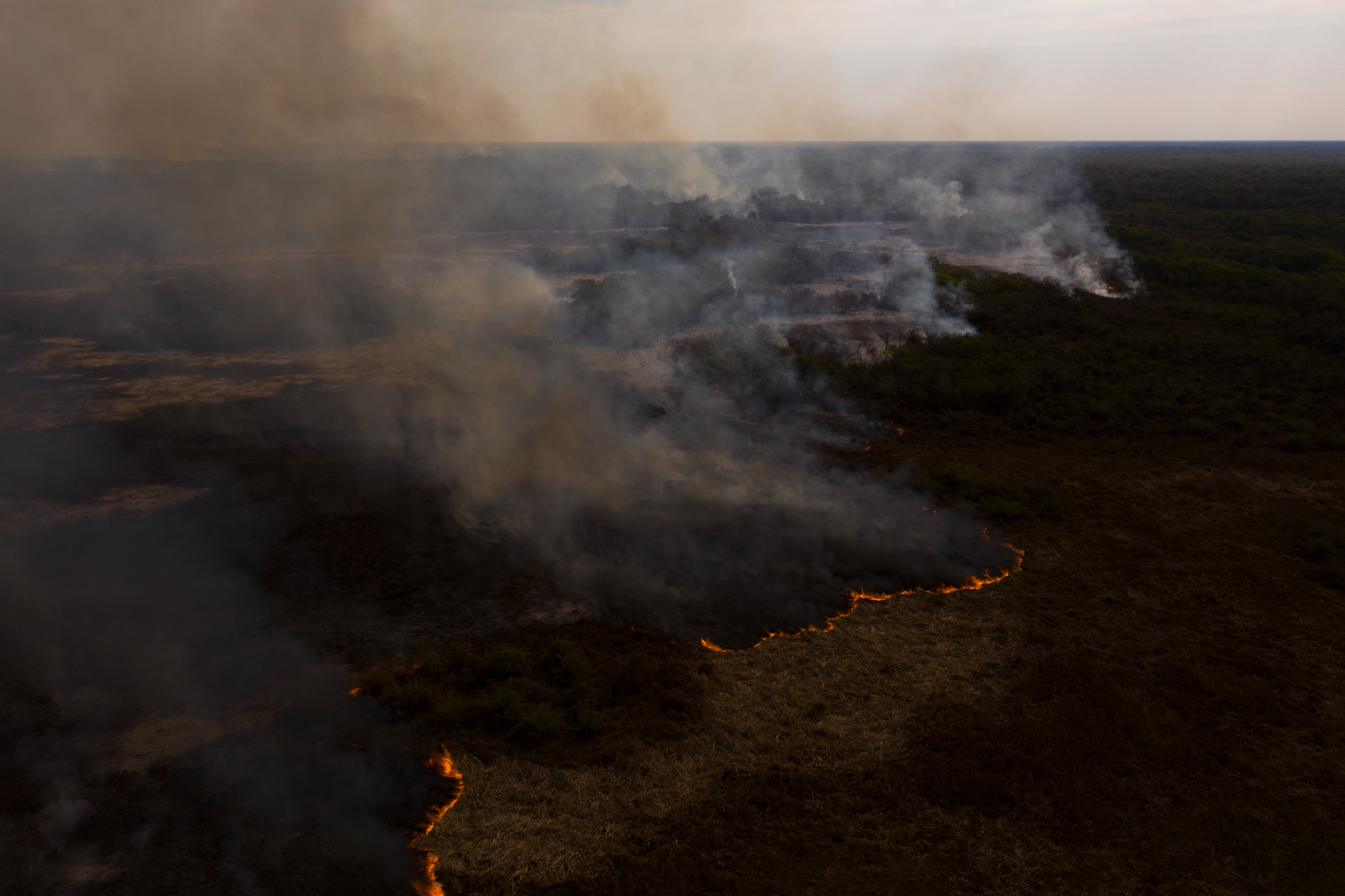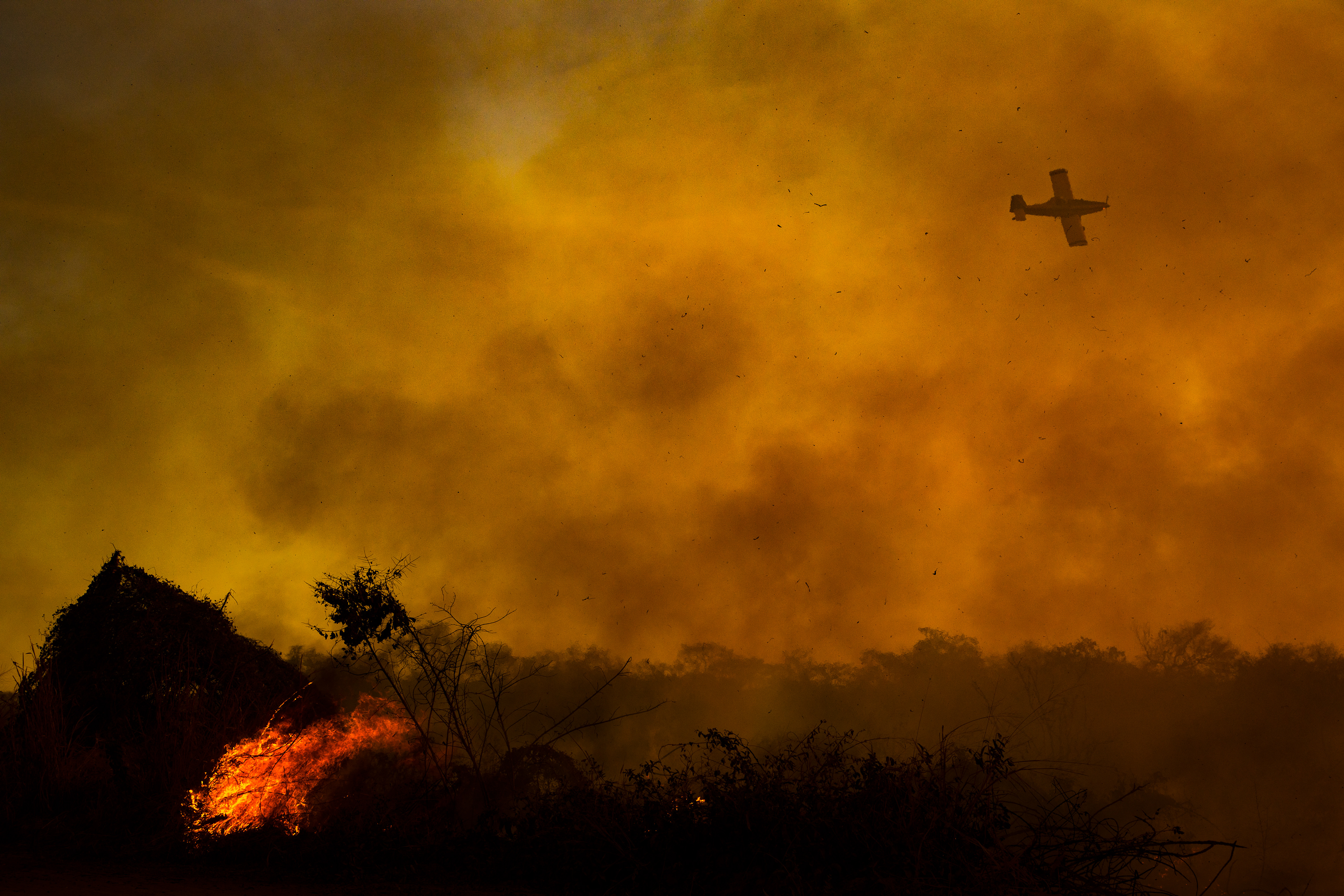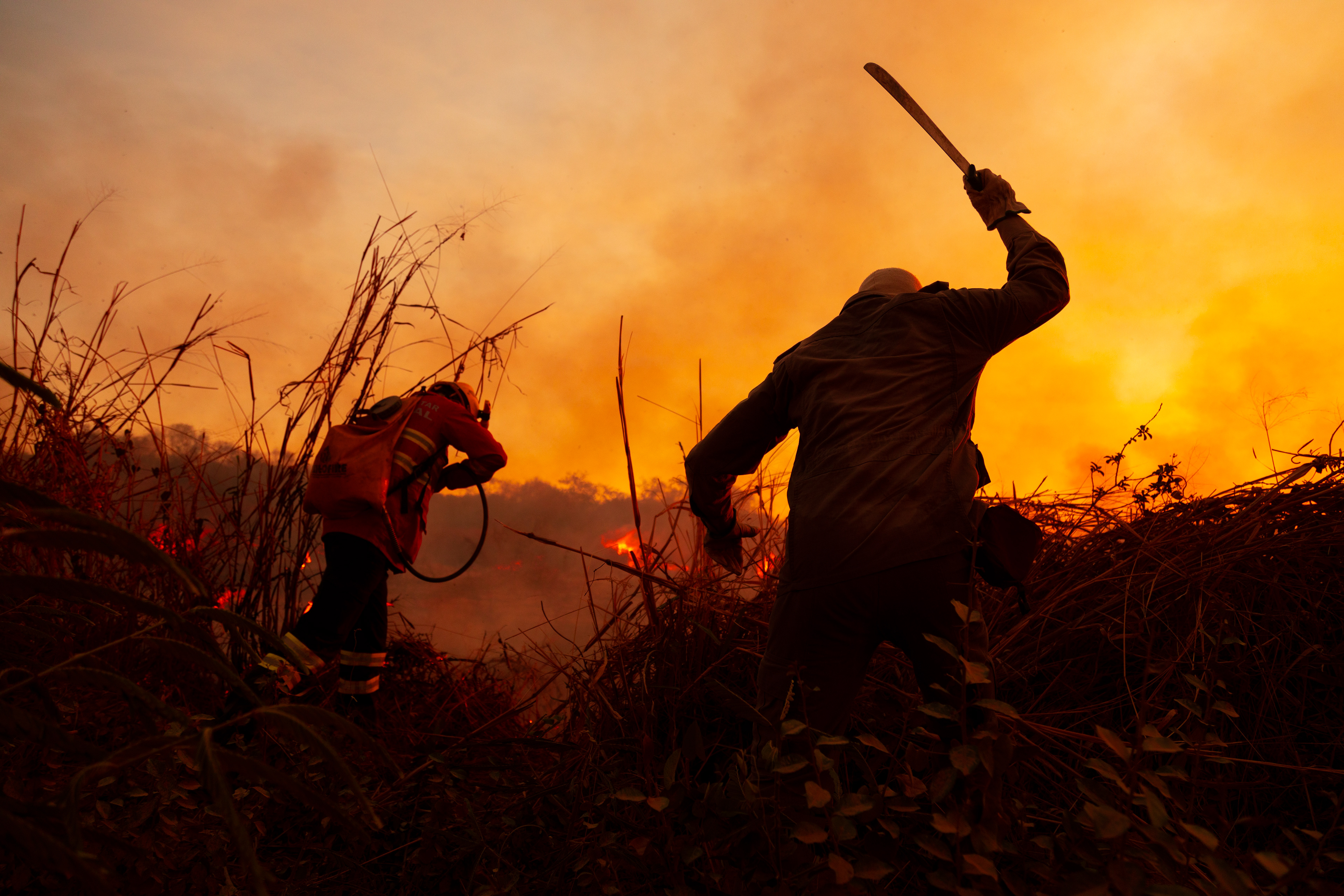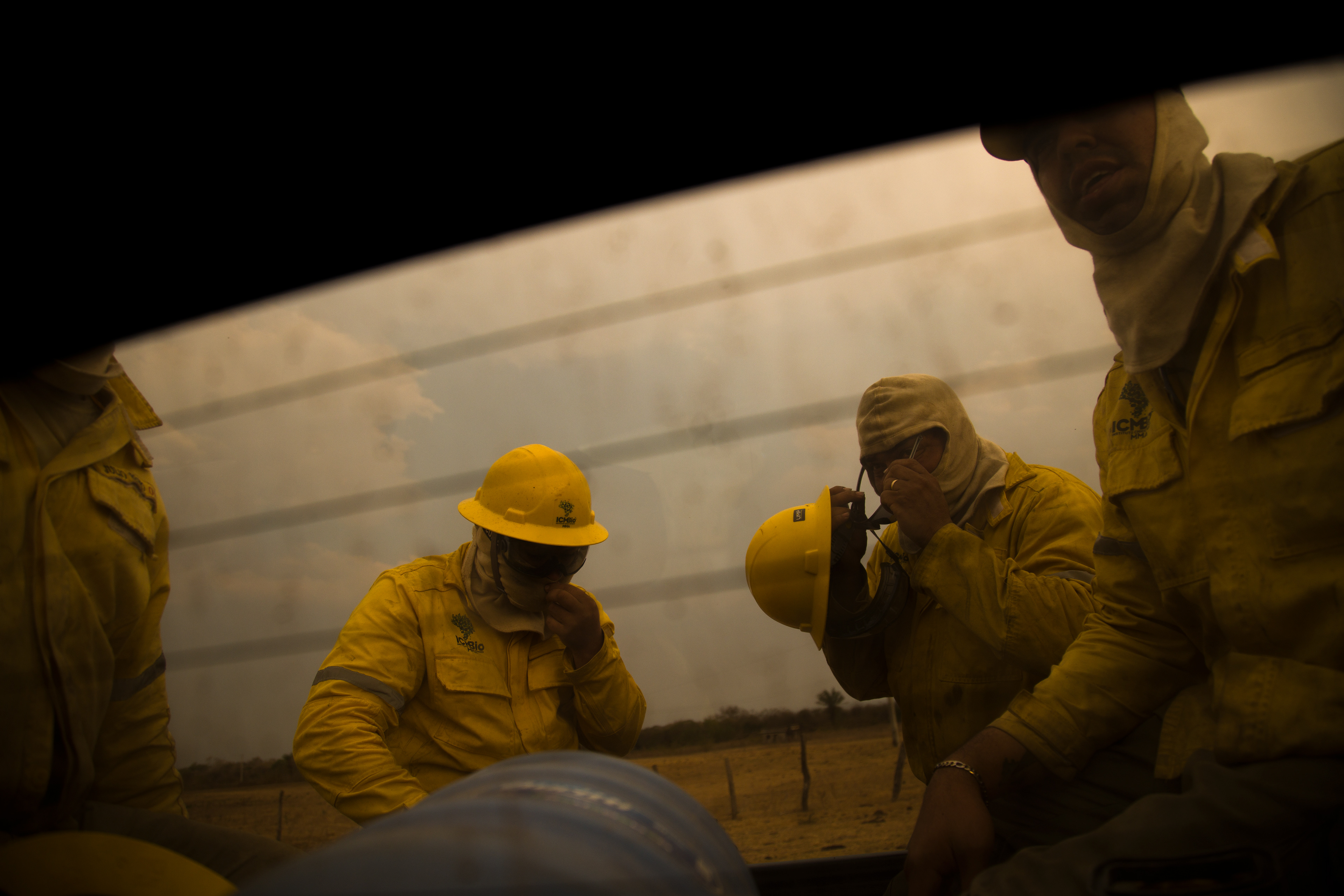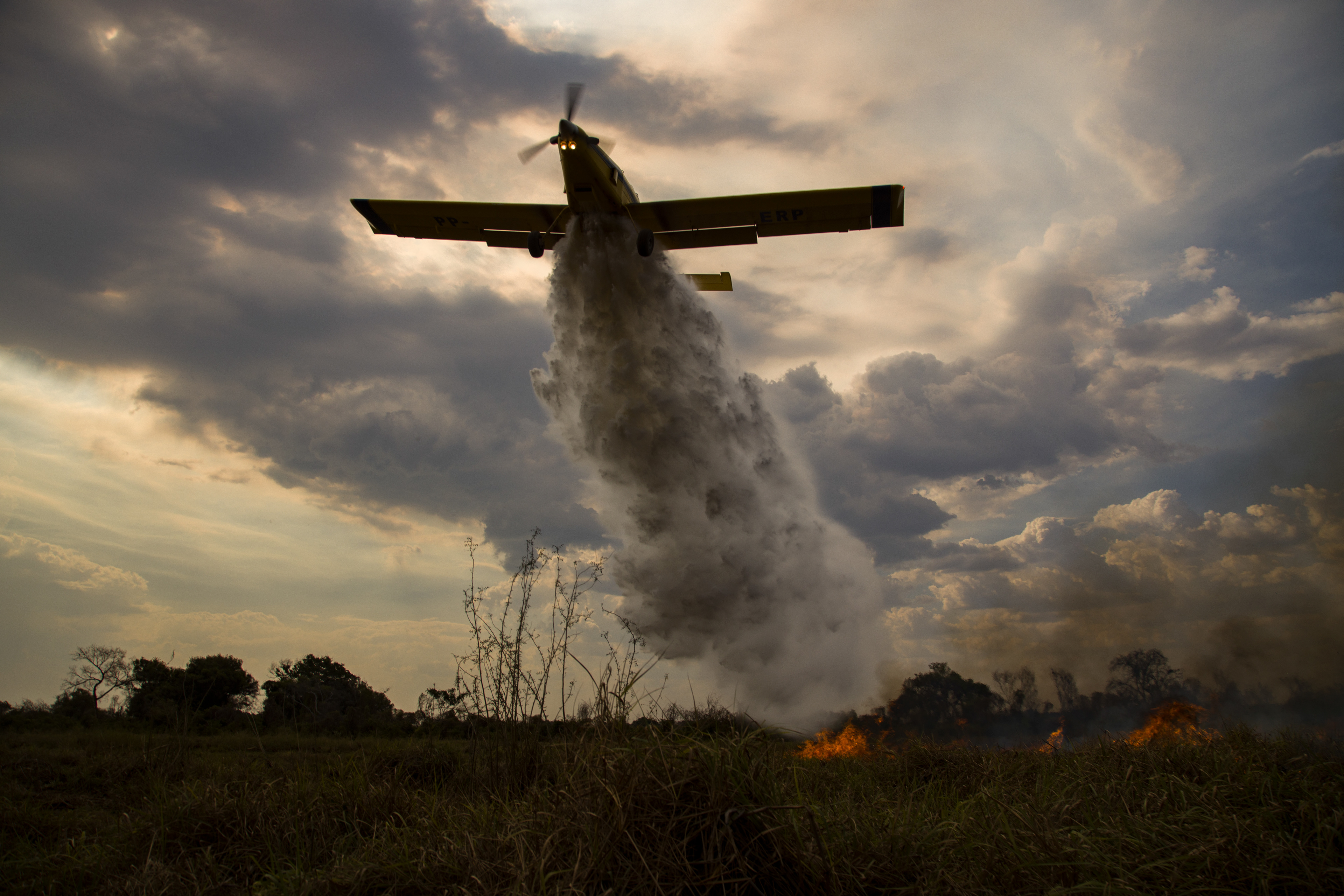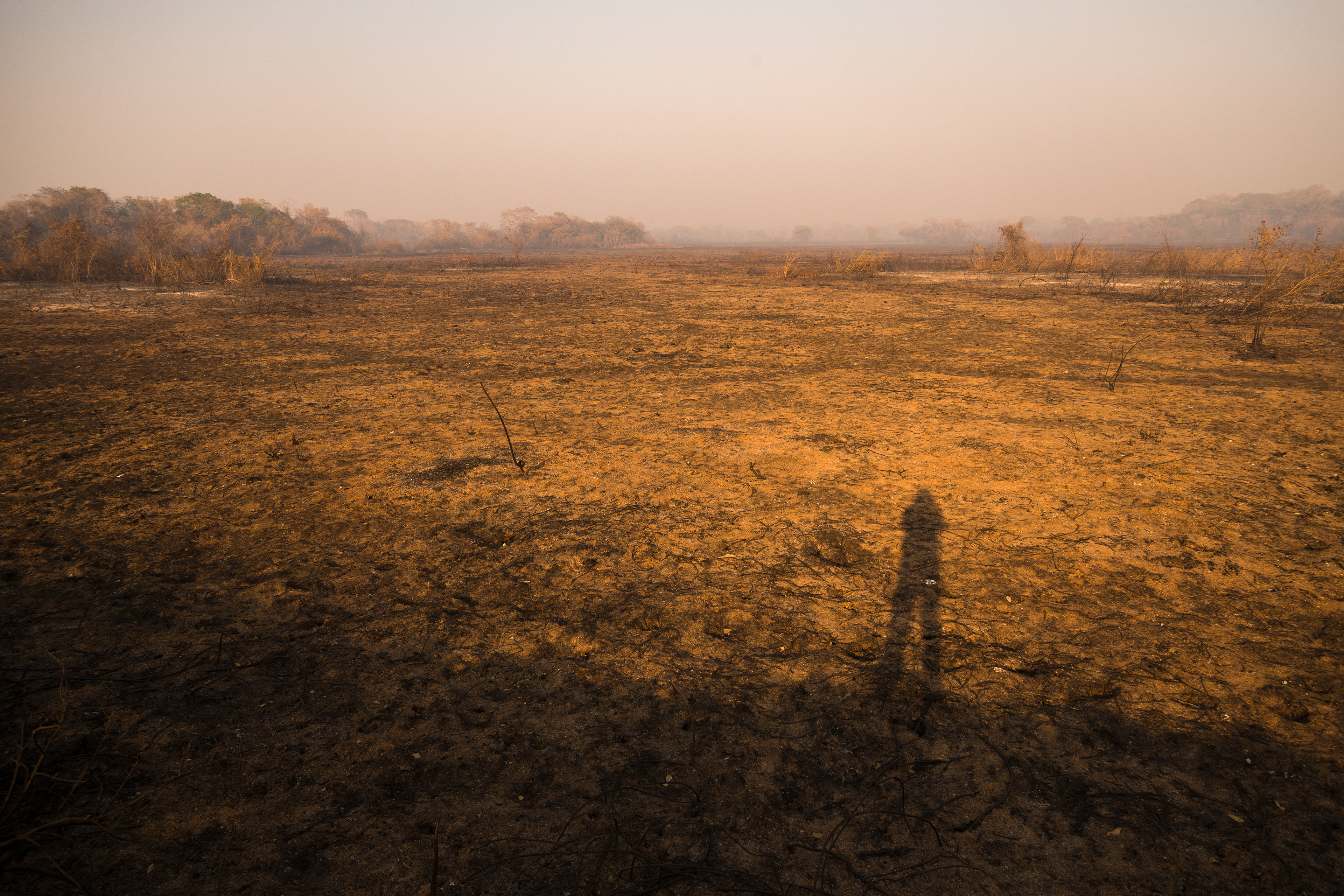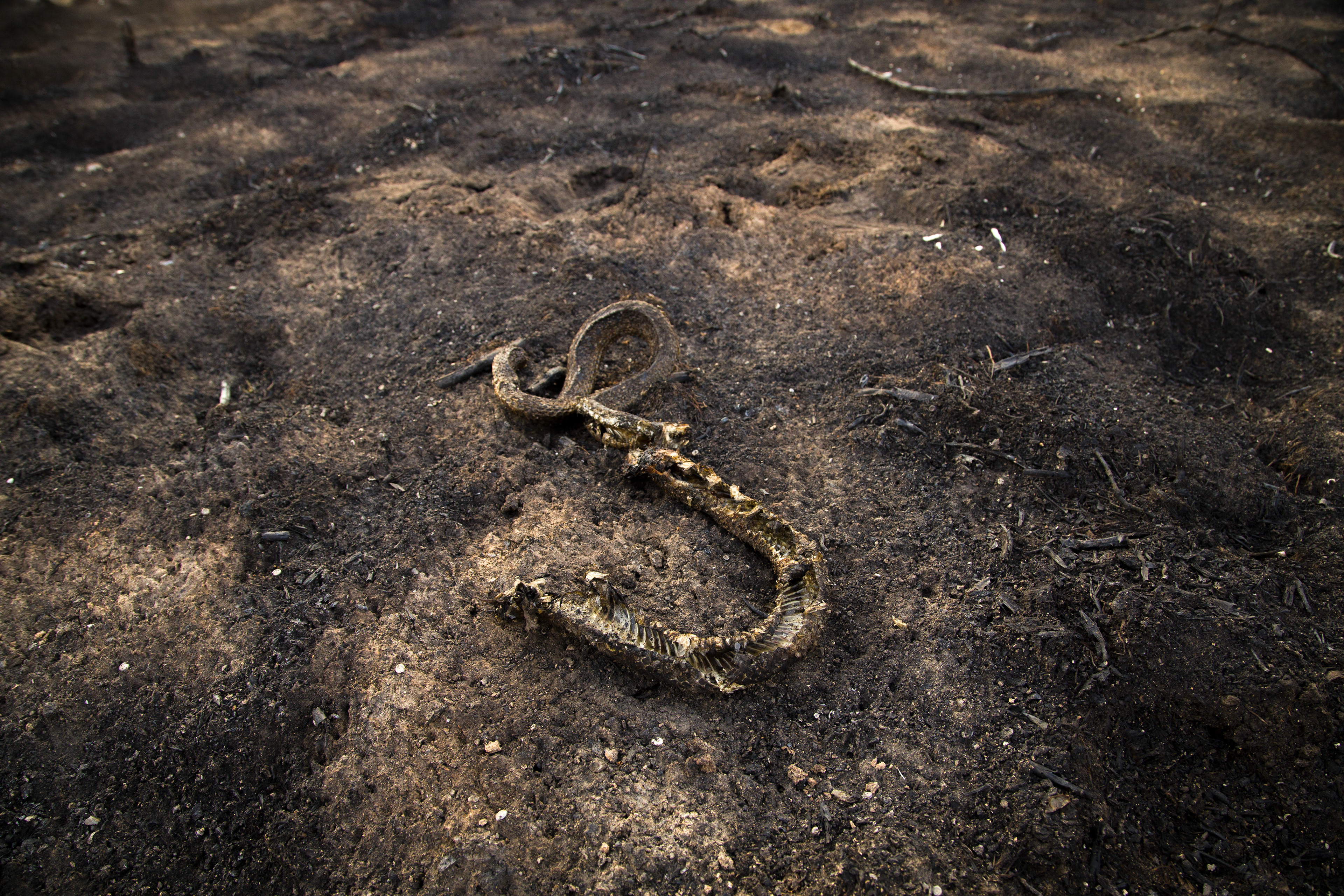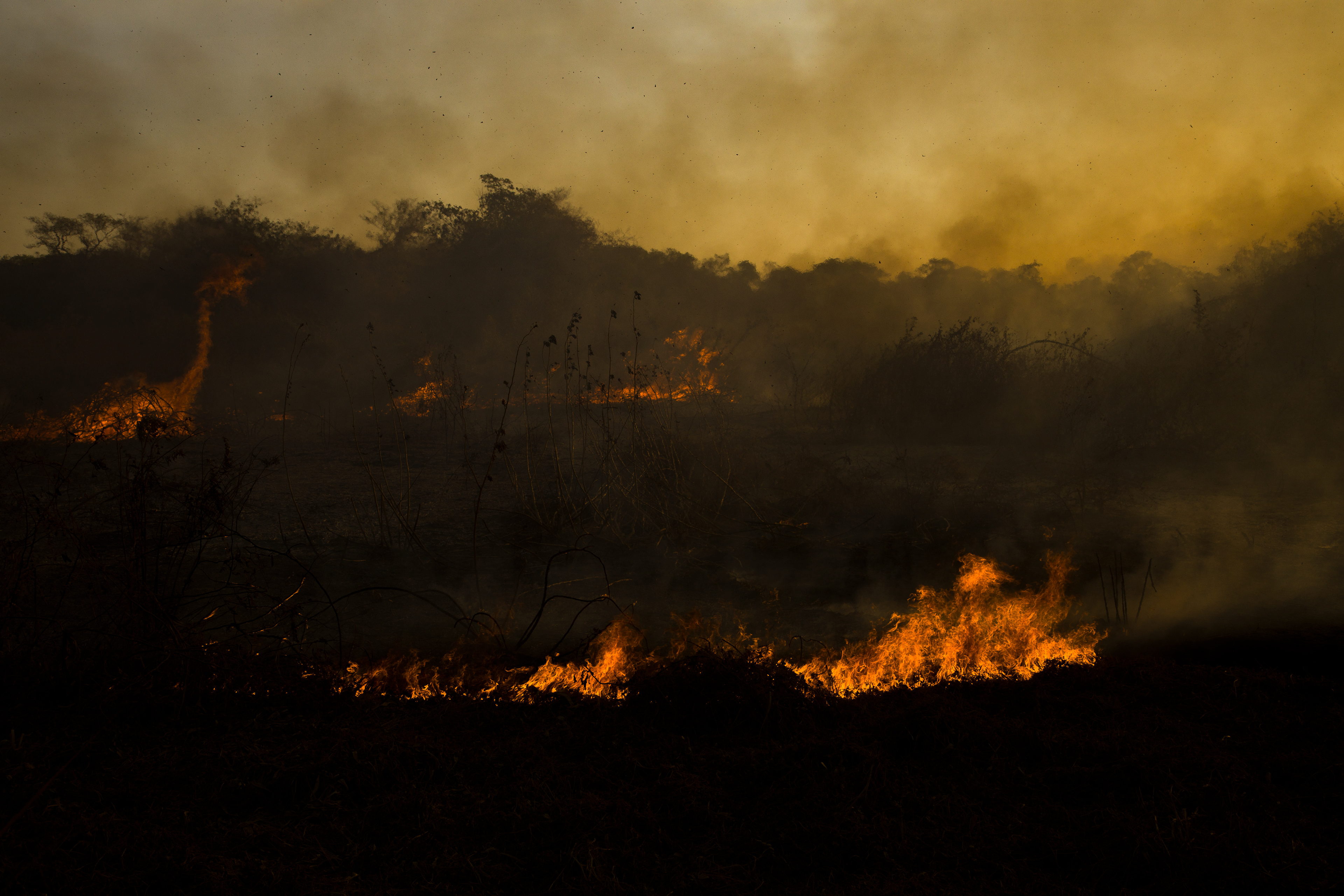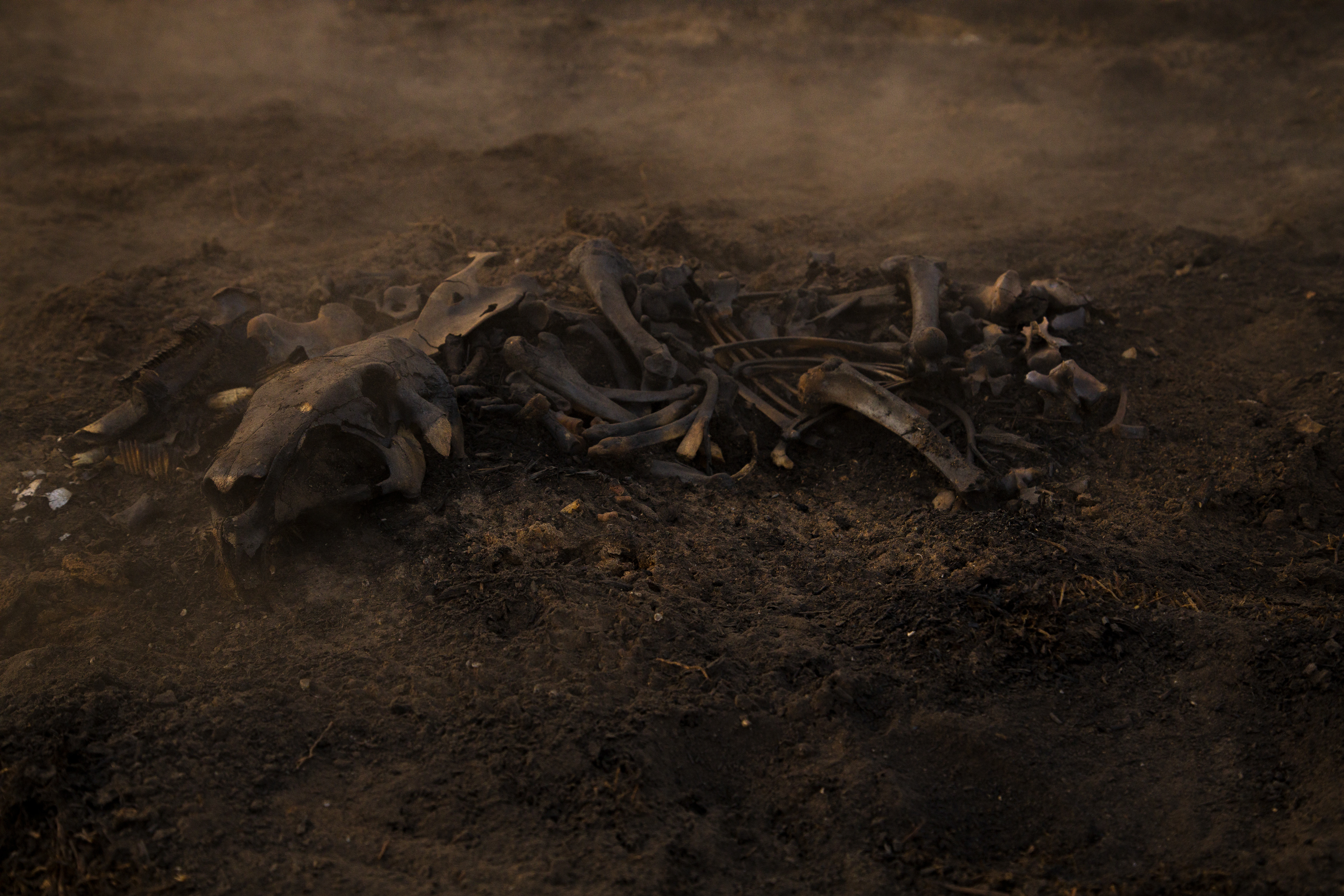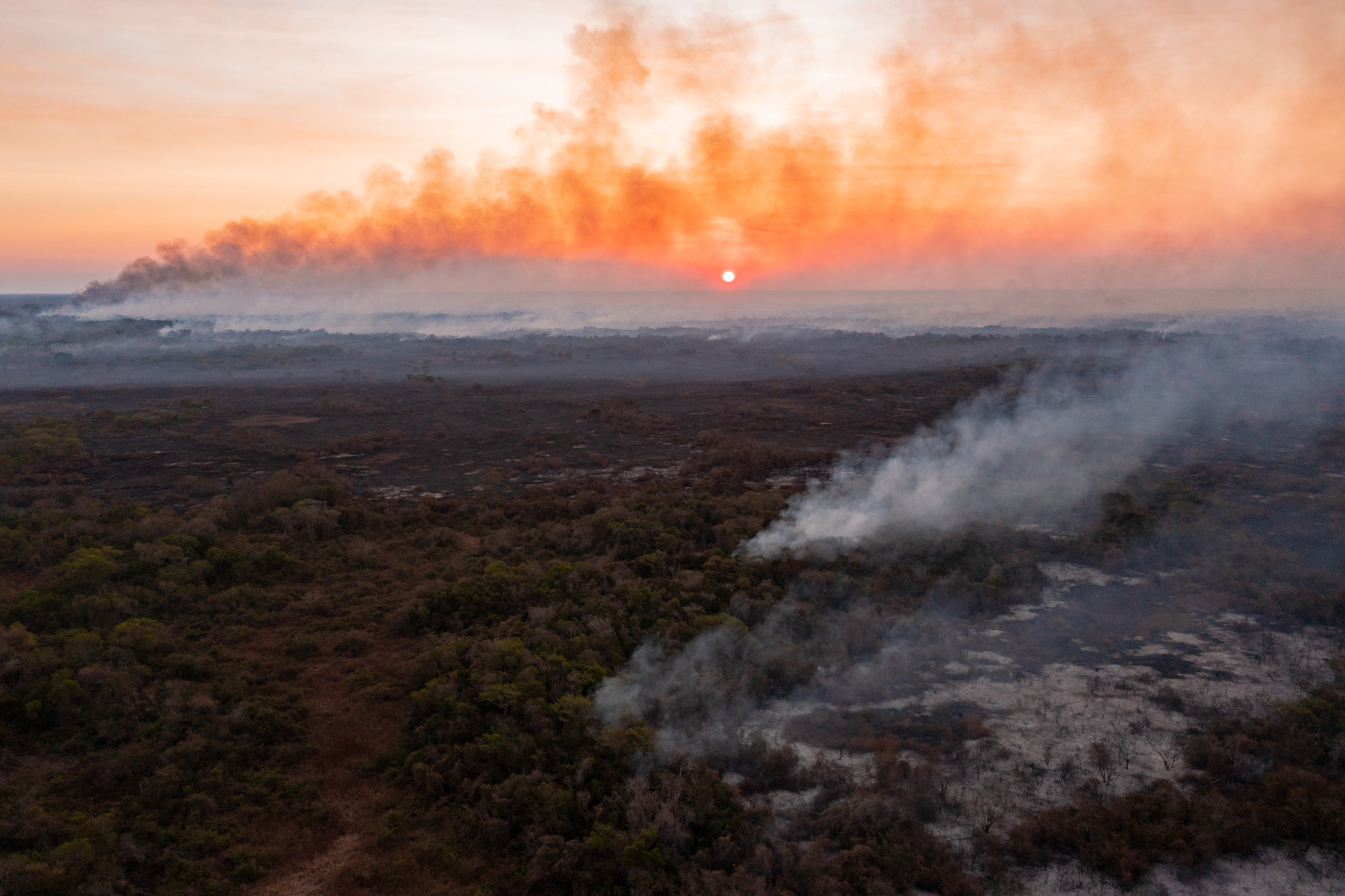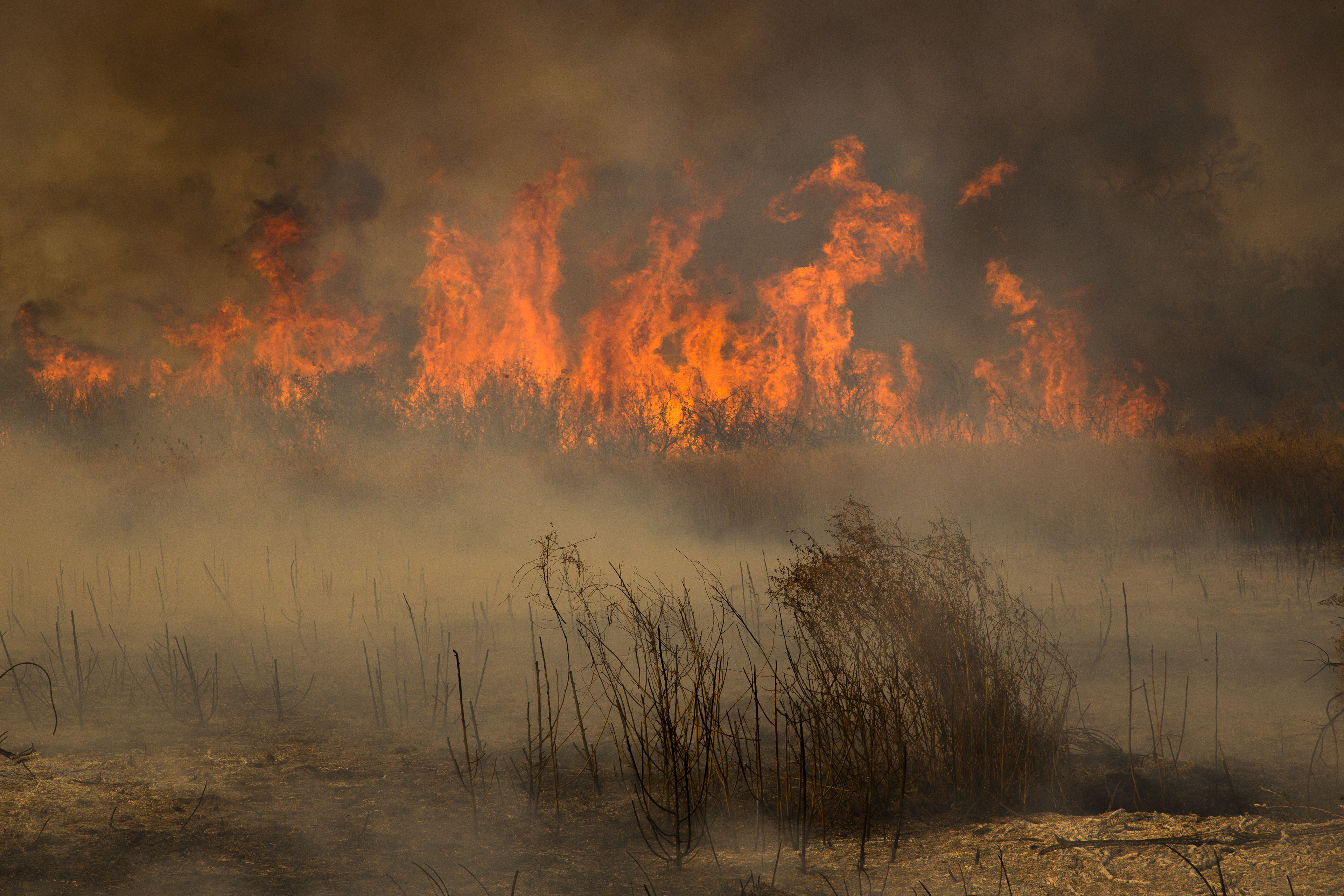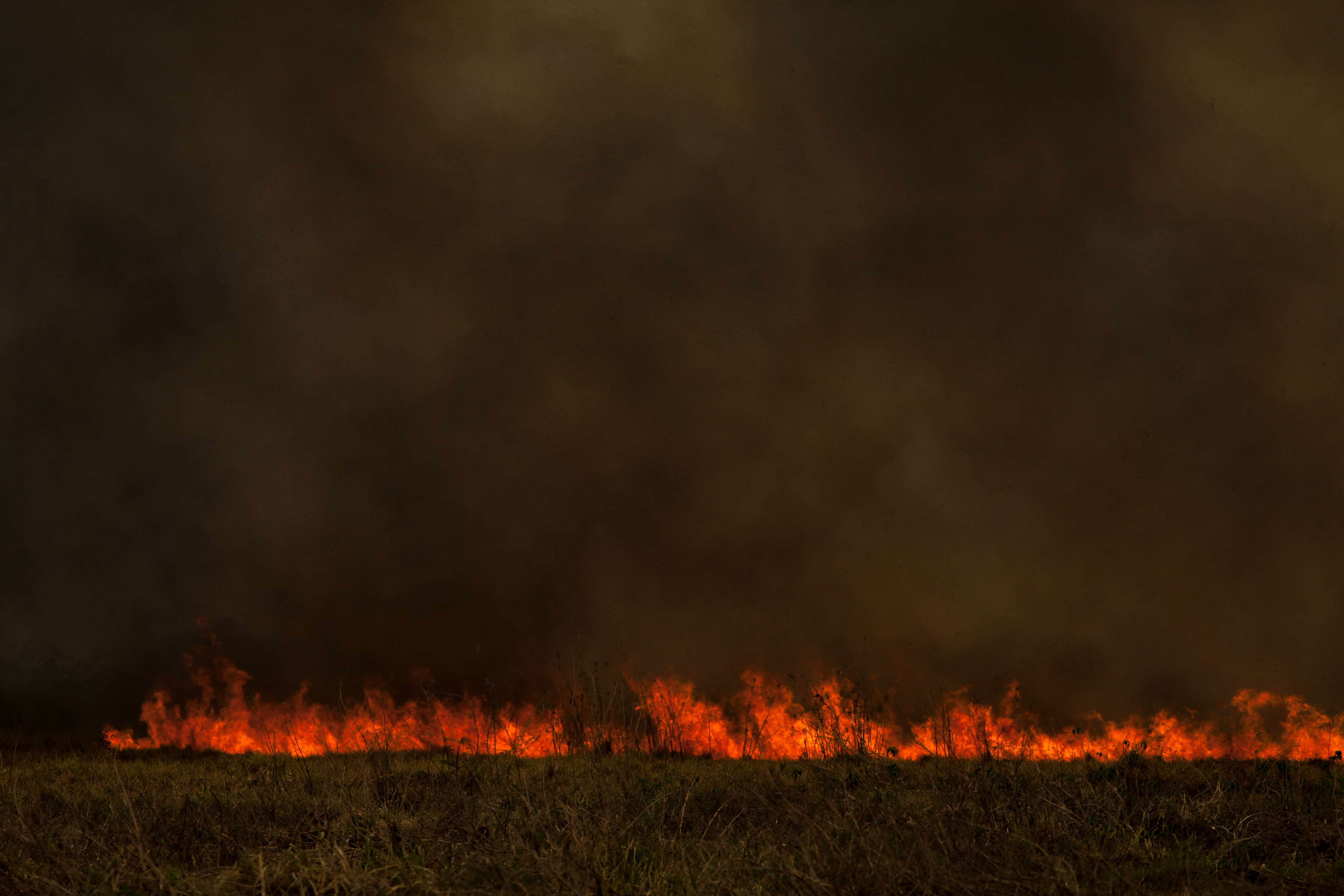Whenever extreme weather occurs people often ask, “Did climate change cause that?”. Scientists will say that’s the wrong question.
The way to think about it is, “Did climate change make it worse?”
The way to think about it is, “Did climate change make it worse?”
Climate change makes large, destructive wildfires more likely because of hotter temperatures and drier vegetation.
Higher average temperatures are increasing the length of fire season and the number of places where fires can occur.
Almost 17 million vertebrates died in Pantanal fires only in 2020. Human activities, including climate change, have put roughly a million species at risk of extinction, many within decades. Climate change is expected to become the leading cause of extinction as temperatures warm. Warmer temperatures and altered precipitation patterns upset the stability of natural ecosystems, threatening biodiversity.
The climate crisis affects all of us, whether we live in UK in the US or in Brazil. But it does not affect us all in the same way. As a result of systemic inequities, people of color, Indigenous people, and the poor typically bear the brunt of climate disasters. Globally, poorer countries with very low carbon emissions suffer the most from the carbon emissions from wealthy countries. According to a recent report by Oxfam America, the richest 10% in the world produce more than half of the world’s carbon emissions, while half of the poorest are responsible for just seven percent of emissions.
It is not fair.
About a quarter of all global greenhouse gas emissions come from growing food. Land clearing is the biggest single reason, because it releases carbon dioxide stored in the soil and trees. Other greenhouse emissions come from nitrogen fertilizer and the methane-laden burps of cattle.
